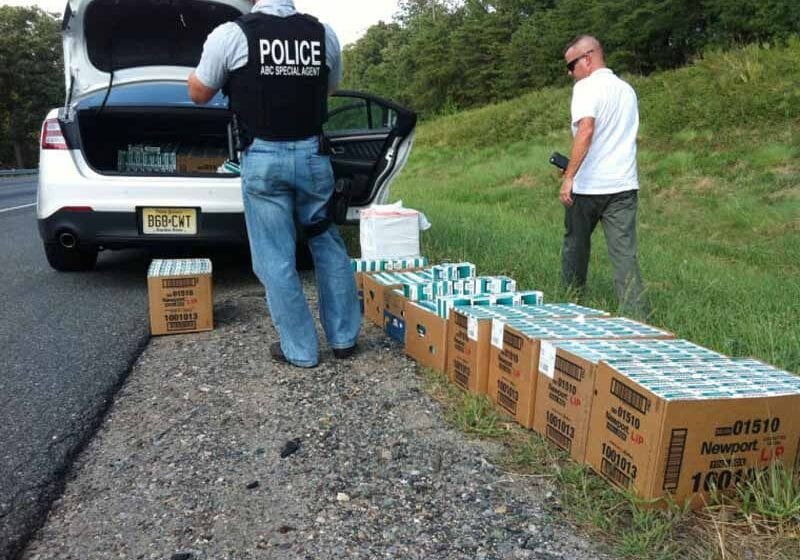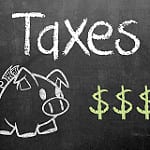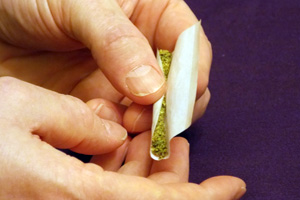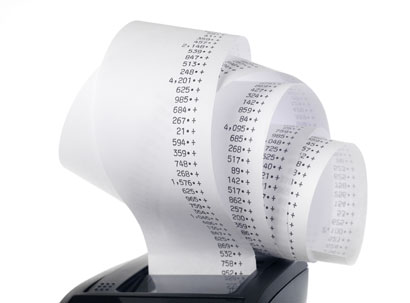Tobacco tax hikes announced in this week’s federal budget will deal a severe financial blow to Canadian convenience-store owners by fueling demand for cheaper illicit cigarettes, according to the Ontario Korean Businessmen’s Association (OKBA), the largest organization of independent convenience stores in the province.
The OKBA said the 2018 federal budget had announced an additional $1 in tax per carton of cigarettes, and an inflation adjustment that added another $1.29 in tax per carton.
The increases announced in this week’s budget had come just before the Ontario government was planning to introduce another $4 per carton tax hike as part of its upcoming provincial budget.
“This federal tax hike, combined with the recent provincial increase will raise a carton price by $6.29,” said Don Cha, general manager of the OKBA. “This will undoubtedly drive more convenience-store owners out of business and drive more smokers into the black market of contraband tobacco.
“Already governments lose more than $1 billion in tobacco taxes when consumers buy their products from the black market. These tax increases will cause them to lose even more money that could be put to good use.”
A study conducted late last year on behalf of the Ontario Convenience Stores Association (OCSA) revealed that nearly 40 percent of all tobacco products consumed in Ontario was illicit. According to the study, illicit cigarettes now account for 37.2 percent of all cigarettes smoked in the province. The study showed also that the level of contraband tobacco in Ontario had been rising at an ‘alarming’ rate during the past three years.
“The budget speech this week said that tobacco taxation is known to be one of the most effective ways to keep tobacco products out of the hands of young people,” said Cha. “But that’s simply not true. The reality is that repeated government tax hikes mean the price gap between legal tobacco and contraband tobacco continues to grow larger and larger, and that makes illegal cigarettes financially more available, especially to lower-income residents and minors.”
Cha said that it was hypocritical of the government to avoid overly expensive pricing for marijuana in order to prevent the growth of illegal sales. In speaking about the sale of licit marijuana recently, the prime minister had pointed out that if prices of licit and contraband marijuana were even, people would choose to buy licit products. The same standard should apply to tobacco as well, Cha added.
Category: Taxation

Pouring gas on the fire

Taxing questions in Kenya
The current system for taxing cigarettes in Kenya should be replaced with a simplified one where all types of cigarettes are taxed equally, according to a story in The Star.
Currently, filtered cigarettes are taxed at Sh1.80 per piece while those without filters are taxed at Sh2.50 per piece.
The International Institute for Legislative Affairs (IILA), which is described as a Nairobi-based legal think tank, said the system had created many loopholes and that the government was ‘losing Sh7 billion every year in potential taxes’.
The IILA has proposed the introduction of a flat rate of Sh3.25 per piece regardless of whether it is filtered or not.
In fact, the Kenya Revenue Authority (KRA) adopted a flat taxation system in 2015, taxing cigarettes at Sh2.50 per piece regardless of type.
“This move led to a drop of 17 percent in consumption of cigarettes and an increase of revenue of appropriately Sh7 billion from Sh8.23 billion to Sh15.56 billion,” Emma Wanyonyi, the IILA chief executive, said in Nairobi yesterday.
But manufacturers had lobbied against the flat rate and the Treasury Cabinet Secretary Henry Rotich ordered the KRA to revert to the tiered system last year.
The IILA submitted its recommendations to the treasury, which received 2018-19 tax proposals from key public and private sector players yesterday.
BAT Kenya said it opposed increased taxes on the grounds that cigarettes would become ‘too expensive for ordinary people’.
“We would encourage the government to have a much more stable tax environment so that their revenues can be more predictable and we can have a more predictable operating environment,” BAT Kenya managing director Beverly Spencer-Obatoyinbo said.
Illegal trade ‘rampant’
Zimbabwe is in the grip of a ‘rampant’ illegal trade in cigarettes that is becoming a challenge to local cigarette companies and the economy in general, according to a story in The Herald quoting tobacco-industry sources.
The story said that illicit cigarettes were being sold on the streets for half to a third of the normal retail price, prejudicing sales in conventional shops and the country’s tax revenue.
The MD of the local arm of British American Tobacco, Clara Mlambo, said the tobacco sector was suffering from the effects of foreign currency shortages and low disposable incomes, on top of those created by the illegal trade in cigarettes.
The Herald reported that illicit cigarettes were usually sold at 50 cents a pack while the officially-gazetted average price in conventional retail outlets was $1.50.
“We have seen some products from other companies but not our brands,” said Mlambo. “They are sold so cheap on the streets, which means the consumers will buy those due to pressure on their wallets.”
Mlambo said there was a need for increased enforcement by revenue authorities to curb the challenge of the illegal trade, which was posing a threat to the licit tobacco sector.
Nevertheless, she said that BAT was optimistic about its prospects and encouraged by government initiatives aimed at improving the business environment and attracting investment into the country.
Singapore sting
Cigarettes have become more expensive in Singapore following a 10 per cent increase in excise duty on all tobacco products, but experts are divided on whether this will reduce the number of smokers, according to a story in The Straits Times.
The story gave no details of what experts were saying, but it did mention that tobacco excise was last raised in 2014, also by 10 percent.
The latest increase in tobacco taxes was announced by Finance Minister Heng Swee Keat during his Budget speech on Monday.
Prices of popular cigarette brands were set to increase by at least S$1 on Thursday, though some retailers raised them prior to Thursday.
According to a circular sent to retailers on Tuesday by tobacco company Philip Morris Singapore, which was seen by the Times, the price of a pack of 20 Marlboro White cigarettes was set to rise from S$13.00 to S$14.10, while the price of a pack of Sampoerna A Menthol cigarettes was set to increase from S$12.30 to S$13.80.
The Tobacco Network Traders sent out a recommended price list to retailers, increasing the price of rolling tobacco such as Butterfly Yellow by more than S$1 to S$12.
It was not stated whether these increases were down only to the tax rise or whether manufacturers were taking the opportunity of raising their prices.
The tax on a typical pack of 20 cigarettes is now about 60 percent, before goods and services tax, the Ministry of Finance said in response to queries from the Times.
Loose tobacco in fine shape
The popularity of smoking tobacco has been growing in Australia since 2014 and, by last year, had taken the per capita consumption of licit products to 90.8g, according to the data and analytics company GlobalData.
A GlobalData press note did not say what the per capita consumption had been prior to 2017.
Overall, the market for smoking tobacco, which is hugely dominated by fine-cut, includes too a considerable amount of “chop-chop” or illicit loose tobacco.
GlobalData says in its report, Smoking Tobacco in Australia, 2018, that the growth in smoking tobacco sales had come about partly because tax hikes on manufactured cigarettes had rendered fine-cut competitively priced.
Meanwhile, the press note said that the market share of manufactured cigarettes within the total licit tobacco sector had declined from 92.4 percent in 2007 to 86.9 percent in 2017, while, during the same period, the market share of fine-cut had gone from 6.8 percent to 12.6 percent.
And it said that the increases in smoking tobacco’s volumes and market share had been driven by strong growth in sales of fine cut, which accounted for 99.6 percent of the smoking tobacco market; while pipe tobacco sales had continued their steady decline.
Volume sales of smoking tobacco are said to have increased by 29.5 percent between 2007 and 2017, but the prospects for the fine-cut market are said to be mixed. In the short term, GlobalData said, volumes would continue to expand, but the long-term prospects were more pessimistic as a result of ever-tightening regulatory restrictions.
‘Australia is a highly regulated market and the government has been using tax policies to curb tobacco consumption,’ GlobalData said in a press note. ‘Smoking appears to be in decline with the latest data placing adult smoking at only 14.9 percent, compared to almost 30 percent in 1990.’
Ranjan Singh, tobacco markets analyst at GlobalData was quoted as saying that while it seemed that the country’s smoking population had stabilized, current strategies aimed at making smoking more expensive and more restricted could can be expected to reduce smoking further.
Singapore taxes up
The Singapore government has imposed a 10 percent increase on tobacco excise duty, Finance Minister Heng Swee Keat said during his Budget speech yesterday.
According to a story by Monica Kotwani for Channel NewsAsia, Heng said the higher excise duty would be implemented across all tobacco products with immediate effect – from February 19.
The Singapore Customs’ website indicates that cigars, cheroots and cigarillos were taxed at S$388 per kilo; so this will have increased to S$427 from yesterday.
The excise duties on cigarettes containing tobacco and cigarettes with tobacco substitutes has increased to almost 43 cents per gram.
Kotwani quoted the World Health Organization as saying that a 10 percent increase in the price of cigarettes resulted in a four percent decrease in demand in high-income countries, and about a five percent decrease in demand in low- and middle-income countries.
Taxing problems in Kenya
British American Tobacco Kenya has said further increases in excise duty could put its products out of consumers’ reach and deal a hard blow to its profitability, according to a story in The Business Daily.
BAT Kenya, which on Friday reported a 21.2 percent drop in net profit to Sh3.3 billion, said unpredictable tax increases were a threat to its Kenya business.
“We would encourage the government to have a much more stable tax environment so that their revenues can be more predictable and we can have a more predictable operating environment,” BAT Kenya MD Beverly Spencer-Obatoyinbo said at a media briefing.
“Smaller increases in specific excise rates are easier for us to manage and easier for the consumer to handle and will give consistent revenue gains for the government.”
Tobacco control advocates claim that cigarette tax is too low, and they have been urging the government to raise it from the current Sh2.50 per piece to Sh3.25 per piece.
“Currently, the average growth in the nominal price of a pack of cigarettes is lower than that of kerosene and food, and therefore cigarette smoking is going up,” said Rodgers Kidiya, program officer in charge of research and development at the Nairobi-based International Institute for Legislative Affairs.
The tax-increase proposal, Kidiya said, was based on a predictive model that took into account inflation to show the future prices of products.
The current tobacco excise tax regime was instituted in 2015, but in March last year Treasury Secretary Henry Rotich provided relief to smokers of low-end cigarettes with a cut in excise tax that saw the price of non-filter cigarettes fall by 70 cents.
Rotich split the tax structure for cigarettes keeping it at Sh2.50 per piece for cigarettes with filters and introducing a new rate of Sh1.80 for those without.
The two types of cigarettes had been attracting a uniform tax of Sh2.50 per piece.
Gambling on smoking
A Macau Health Bureau (MHB) investigation conducted between 2015 and 2017 has revealed that tobacco consumption in the city decreased by 12.2 percent among those aged over 15, according to a story in The Macau Business.
There was no indication of the consumption levels in 2015 and 2017, but the story indicated that the current incidences of tobacco consumption among males and females stood at 23.2 percent and 2.7 percent respectively.
The MHB indicated that the government intended to strengthen the promotion of non-smoking through ‘timely increases in tobacco taxes’ to bring them closer to those recommended by the World Health Organization.
In 2015, the Macau government increased cigarette taxes to MOP1.5 per unit, which meant that taxes increased from 33 percent to 70 percent of the retail price.
At the same time, it reduced the number of cigarettes that a person could bring into Macau from 100 to 19.
Meanwhile, from the beginning of January, the city has enforced a revised version of legislation brought in in 2011. The revised rules ban advertising and tobacco promotions, and prohibit smoking in enclosed public spaces and within 10 meters of bus stop signs and taxi stands. Fines for smoking in the banned areas have been increased from MOP600 to MOP1,500.
The MHB said that the number of fines handed out for smoking infractions during January, at 510, were down by 20.4 percent on those handed out during January 2017. Almost 64 percent of the fines were handed to tourists.
Some 71 inspections conducted in casinos by the MHB and the Gaming Inspection and Co-ordination Bureau resulted in 108 infractions being discovered in January, 284 percent more than in the same month of last year.
Tracking an export ban
A German member of the EU parliament has asked the Commission what measures it is taking to prevent its track-and-trace system creating a de facto ban on the export of tobacco products from EU countries to certain other countries.
In a preamble to three questions, Werner Langen said that on December 15, 2017, the Commission had adopted an implementing act introducing an EU-wide track-and-trace system for tobacco products.
The system was intended to cover also products manufactured for markets outside the EU, he said, before asking:
1) ‘Is the inclusion of goods for export within the scope of the track-and-trace system compatible with EU legislation, and how does the Commission therefore view the fact that, in principle, it lacks the power to regulate product specifications for markets outside the European internal market?
2) How does the Commission intend to get around the resulting de facto export ban in third countries such as Australia that, owing to strict packaging and labelling regulations, will not allow track-and-trace coding?
3) ‘What specific measures will the Commission take to prevent this de facto ban?’
Duty-rise proposal rejected
Iran’s Majlis (parliament) has rejected a proposed increase on cigarette duties included in the next budget (March 2018-19) and referred it back to the Majlis Joint Commission for revision, according to a story in The Financial Times.
The commission is the parliamentary body responsible for reviewing the budget bill proposed by the government, before its final ratification.
The government has included in its budget, provision for a 350-rial (US$0.76) increase in the duty on locally- and jointly-produced cigarettes, and a 500-rial increase in the duty on imported cigarettes.









